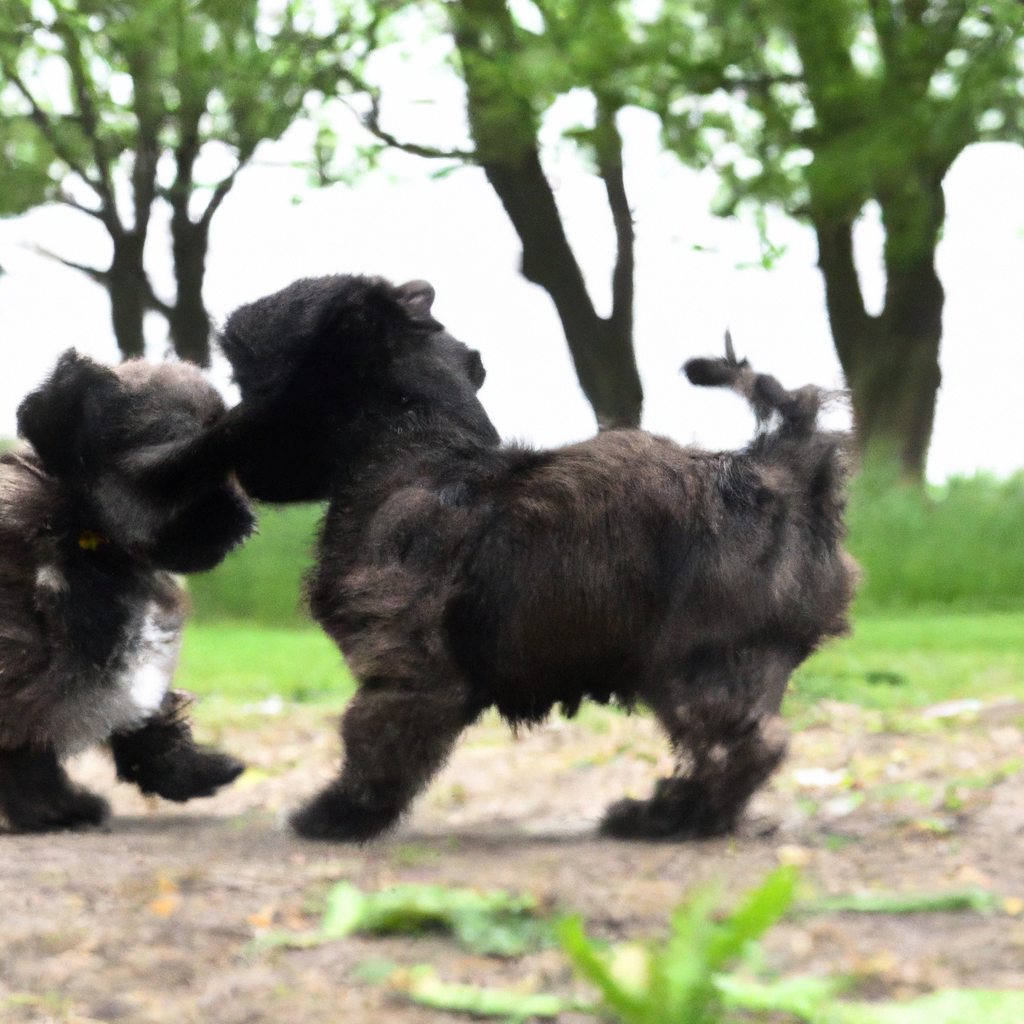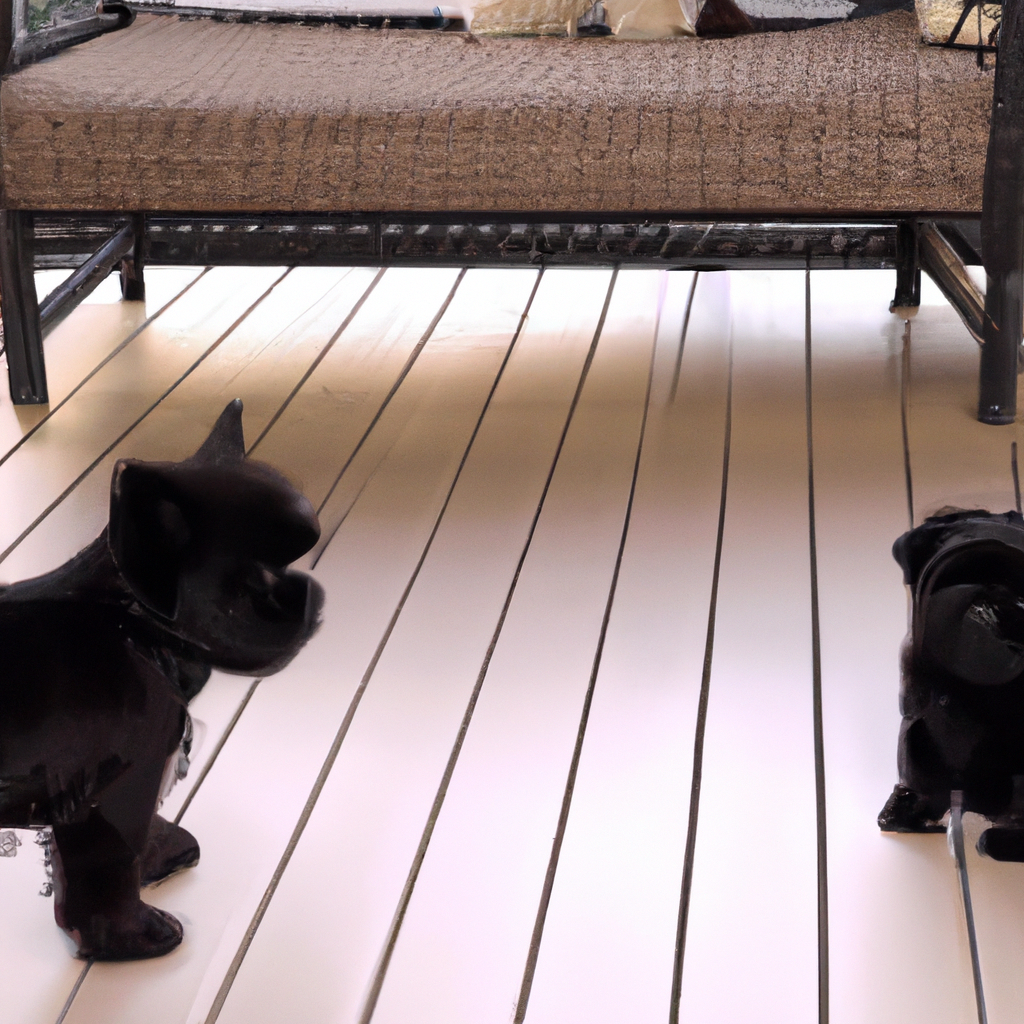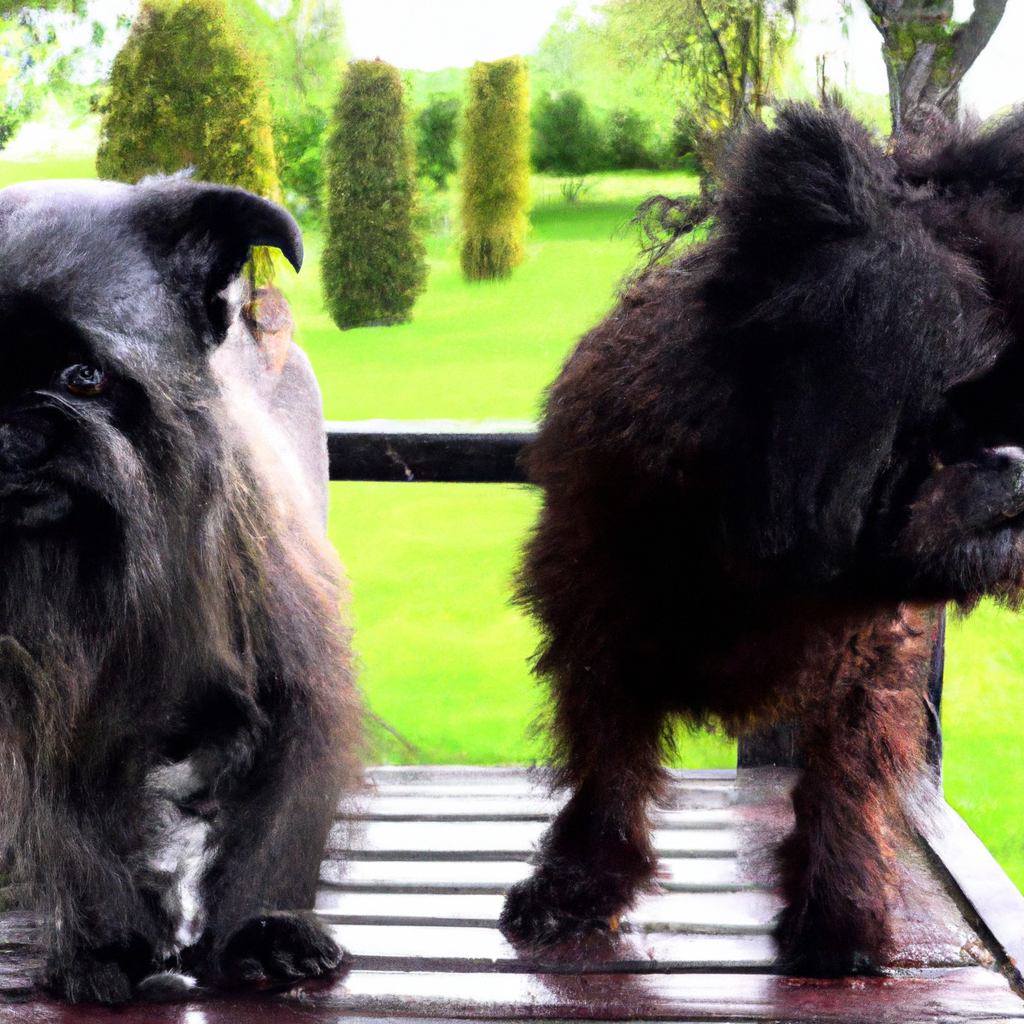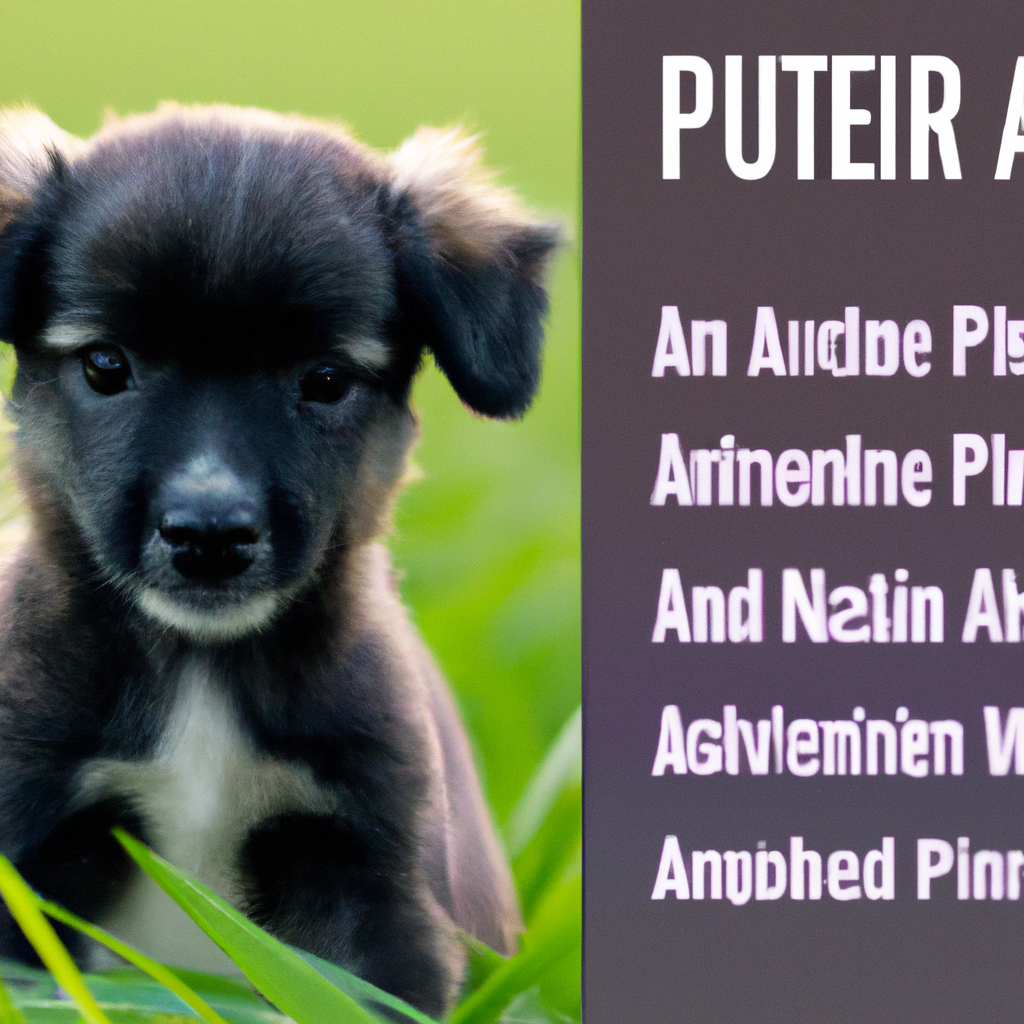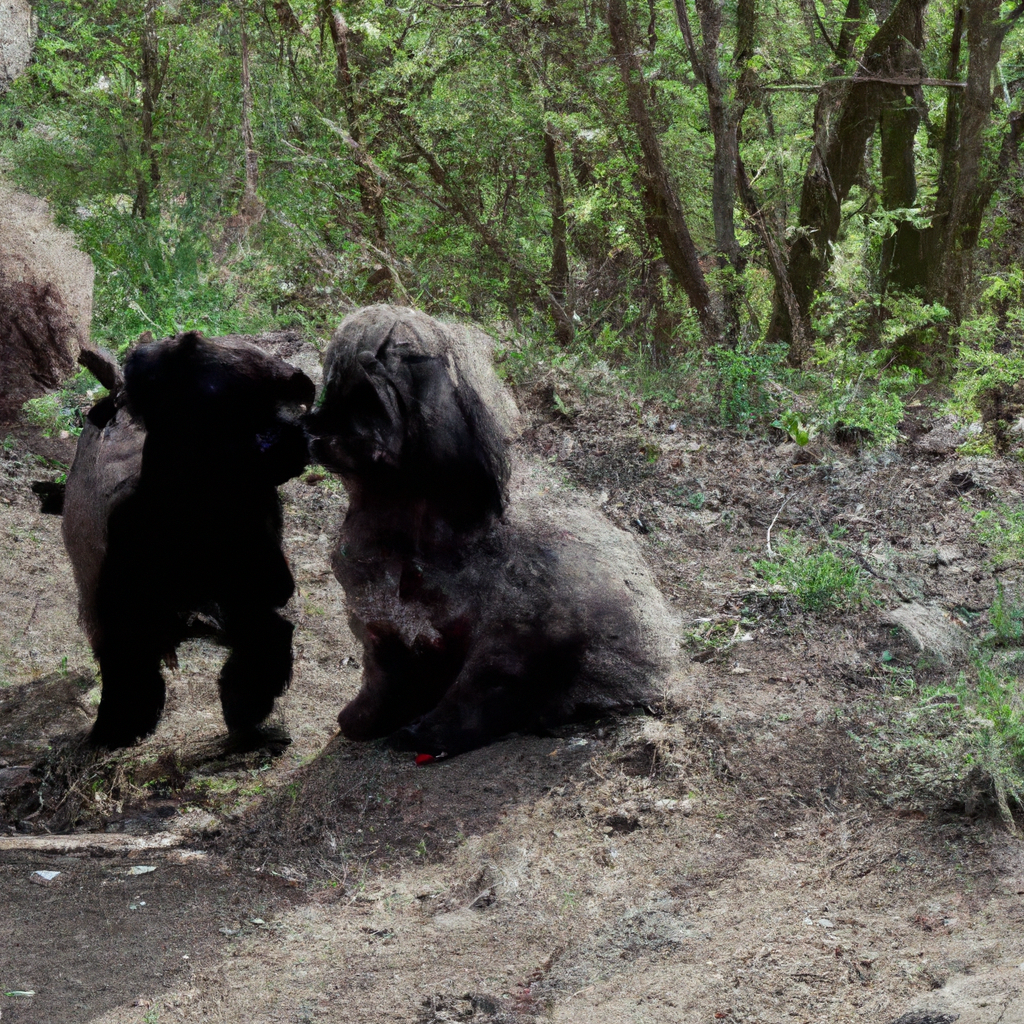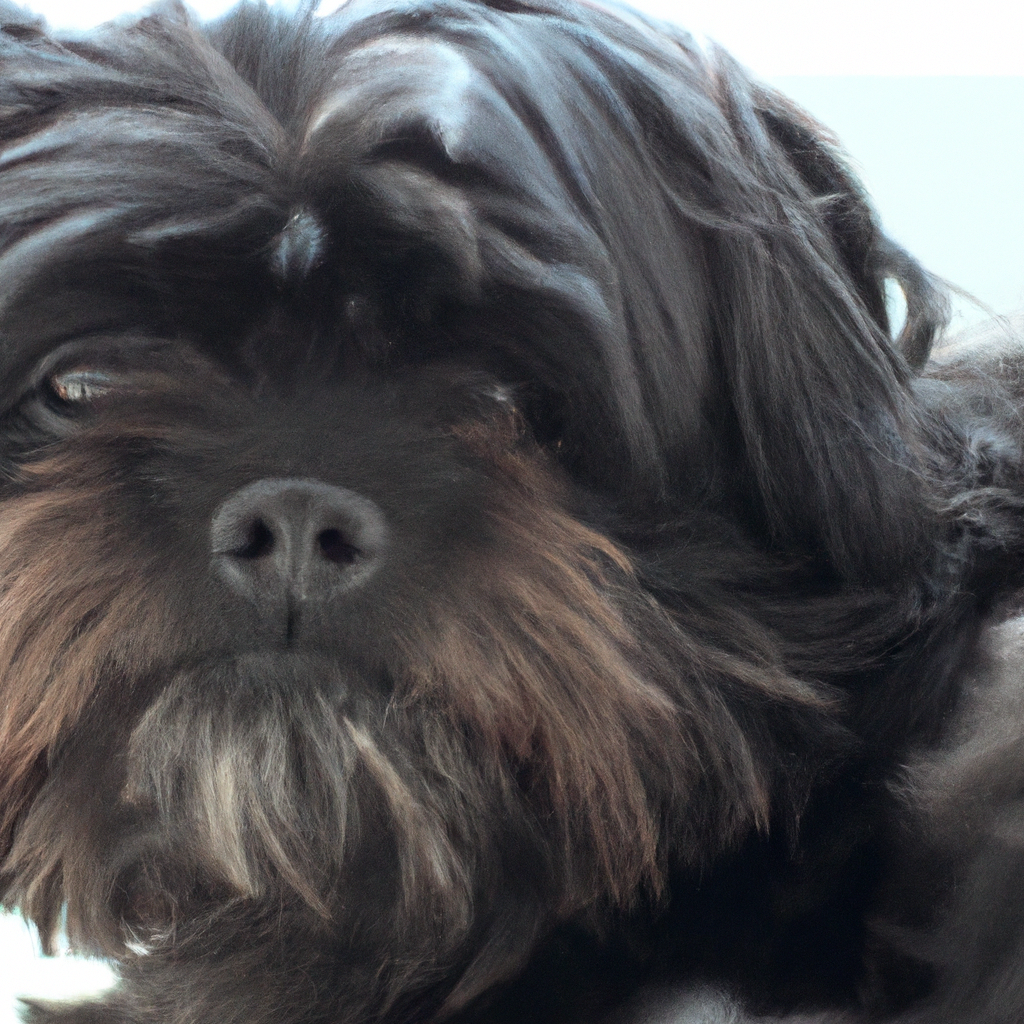Training Differences Between Puppies and Adults in Affenpinschers explores the unique aspects and techniques involved in training Affenpinscher dogs at different stages of their lives. It highlights the fact that puppies and adult dogs have different learning capacities, attention spans, and responses to training. The guide provides insights into the specific needs and challenges of training Affenpinscher puppies, who are typically more energetic and curious, but less focused. In contrast, it also delves into the nuances of training adult Affenpinschers, who may be more set in their ways, but can concentrate for longer periods. The introduction underscores the importance of understanding these differences to effectively train Affenpinschers at any age.
Understanding the Training Needs of Affenpinscher Puppies
Training an Affenpinscher, whether a puppy or an adult, can be a rewarding experience. However, it’s important to understand that the training needs of puppies and adults can differ significantly. This is due to their different stages of development, maturity, and learning capabilities.
Affenpinscher puppies are like sponges, ready to soak up all the knowledge you’re willing to impart. They’re curious, energetic, and eager to please, making them ideal candidates for early training. However, their short attention spans can make training sessions challenging. Therefore, it’s crucial to keep sessions short, fun, and engaging. Positive reinforcement methods, such as treats, praise, and play, work best with puppies. They help to create a positive association with training and encourage the desired behavior.
Socialization is another critical aspect of training for Affenpinscher puppies. This breed is known for its bold and adventurous spirit, but without proper socialization, they can become wary of unfamiliar people and situations. Early exposure to different environments, sounds, people, and other animals can help them grow into well-rounded, confident adults.
On the other hand, training an adult Affenpinscher comes with its own set of challenges and rewards. Adult dogs may already have some ingrained habits or behaviors that need to be addressed. This could range from simple things like not knowing basic commands to more complex issues like aggression or fear-based behaviors.
Training an adult Affenpinscher requires patience and consistency. Unlike puppies, adults have longer attention spans and can handle longer training sessions. However, it’s important not to push them too hard as it can lead to frustration and resistance.
Positive reinforcement is equally effective with adult dogs. However, it’s important to remember that what motivates a puppy may not necessarily motivate an adult. While a puppy might be thrilled with a small treat, an adult might require something more substantial or a favorite toy.
One of the biggest differences in training adult Affenpinschers is the focus on behavior modification. While puppies are learning everything from scratch, adults may need to unlearn certain behaviors before they can learn new ones. This process can take time and requires a lot of patience and understanding.
For instance, if an adult Affenpinscher has developed a habit of barking excessively, the trainer will first need to identify the cause of the behavior. Once the cause is identified, the trainer can then work on replacing the unwanted behavior with a more desirable one. This process is often more complex and time-consuming than teaching a puppy a new command, but it’s equally rewarding.
In conclusion, training an Affenpinscher, whether a puppy or an adult, requires understanding their unique needs and adapting your training methods accordingly. Puppies need short, engaging sessions with a focus on socialization and positive reinforcement. Adults, on the other hand, can handle longer sessions and often require a focus on behavior modification. Regardless of their age, all Affenpinschers benefit from a patient, consistent, and positive approach to training.
How Adult Affenpinschers Respond Differently to Training
Training Affenpinschers, whether they’re puppies or adults, can be a rewarding experience. However, it’s important to understand that the training approach and the response you get can vary significantly depending on the age of your furry friend.
When it comes to training puppies, it’s all about starting from scratch. Puppies are like blank slates, ready to be molded and shaped. They’re curious, eager to learn, and generally more receptive to new experiences. This makes them relatively easier to train, as they haven’t yet developed any ingrained habits or behaviors. However, their short attention spans can make training sessions a bit challenging. It’s crucial to keep the sessions short, fun, and engaging to hold their interest.
On the other hand, training adult Affenpinschers is a different ball game altogether. Unlike puppies, adult dogs come with a set of pre-established behaviors and habits. Some of these habits might be good, while others might need some work. The challenge lies in breaking these old habits and teaching them new ones. This process can be time-consuming and requires a lot of patience.
Adult Affenpinschers, being a bit set in their ways, might not be as eager to please as puppies. They might take longer to grasp new commands or tricks. However, this doesn’t mean they’re untrainable. It just means you’ll need to employ different strategies.
One effective strategy is positive reinforcement. This involves rewarding your dog for good behavior, which encourages them to repeat it. The reward can be a treat, a toy, or even just a pat on the head. The key is to make sure the reward is given immediately after the desired behavior, so your dog associates the reward with the behavior.
Another strategy is consistency. Adult dogs, especially Affenpinschers, thrive on routine. They like knowing what to expect. So, make sure you’re consistent with your training sessions. Train at the same time each day, use the same commands, and give the same rewards. This consistency will help your dog understand what’s expected of them and make the training process smoother.
It’s also important to remember that adult Affenpinschers, like all dogs, are individuals. They have their own personalities, likes, and dislikes. Some might be more stubborn, while others might be more eager to please. Some might respond better to treats, while others might prefer toys or praise. It’s crucial to tailor your training approach to your dog’s individual personality and preferences.
Lastly, patience is key when training adult Affenpinschers. It might take longer for them to learn new commands or break old habits, but with patience and persistence, it’s definitely possible. Remember, it’s not a race. The goal is to build a strong, positive relationship with your dog, and that takes time.
In conclusion, while training adult Affenpinschers might be more challenging than training puppies, it’s by no means impossible. With the right strategies, a lot of patience, and a good understanding of your dog’s individual personality, you can successfully train your adult Affenpinscher. And the reward – a well-behaved, happy, and confident dog – is definitely worth the effort.
The Impact of Age on Training Affenpinschers: Puppies vs Adults
Training an Affenpinscher, whether a puppy or an adult, can be a rewarding experience. However, it’s important to understand that the age of your Affenpinscher can significantly impact the training process. Puppies and adults have different learning styles, attention spans, and energy levels, which can influence how they respond to training.
Starting with puppies, they are like blank slates, ready to learn and absorb everything around them. This is the period when they are most receptive to training. However, their short attention spans can make the process a bit challenging. Puppies are naturally curious and easily distracted, so training sessions should be short, fun, and engaging. Using positive reinforcement methods, such as treats and praises, can be highly effective at this stage. It’s also the perfect time to socialize them with other dogs and people to help them develop good behavior.
On the other hand, training an adult Affenpinscher can be a different ball game. Unlike puppies, adult dogs may come with some pre-existing behaviors or habits, some of which may be undesirable. This doesn’t mean they can’t be trained; it just means the approach might need to be different. Patience and consistency are key when training adult Affenpinschers. It’s important to remember that any bad habits they’ve picked up will take time to unlearn.
Adult Affenpinschers also have longer attention spans compared to puppies. This means they can handle longer training sessions and can grasp more complex commands. However, they may not have the same energy levels as puppies, so it’s essential to keep training sessions engaging but not overly strenuous.
One common misconception is that adult dogs, especially those adopted from shelters, are harder to train than puppies. This is not necessarily true. While they may have some behavioral issues due to their past experiences, adult dogs are just as capable of learning new things as puppies. In fact, many adult dogs are eager to please their new owners and may even be more motivated to learn.
Regardless of the age of your Affenpinscher, it’s crucial to use positive reinforcement during training. This method involves rewarding your dog for good behavior, which encourages them to repeat it. Rewards can be anything your dog loves, such as treats, toys, or praise. Avoid using punishment as a training method, as it can lead to fear and aggression.
In conclusion, the age of your Affenpinscher can impact the training process, but it doesn’t determine its success. Whether you’re training a puppy or an adult, the key is to understand their unique needs and adjust your training methods accordingly. Remember, patience, consistency, and positive reinforcement are your best tools for training your Affenpinscher. With time and effort, you can help your furry friend become a well-behaved and happy member of your family.
Effective Training Techniques for Affenpinscher Puppies
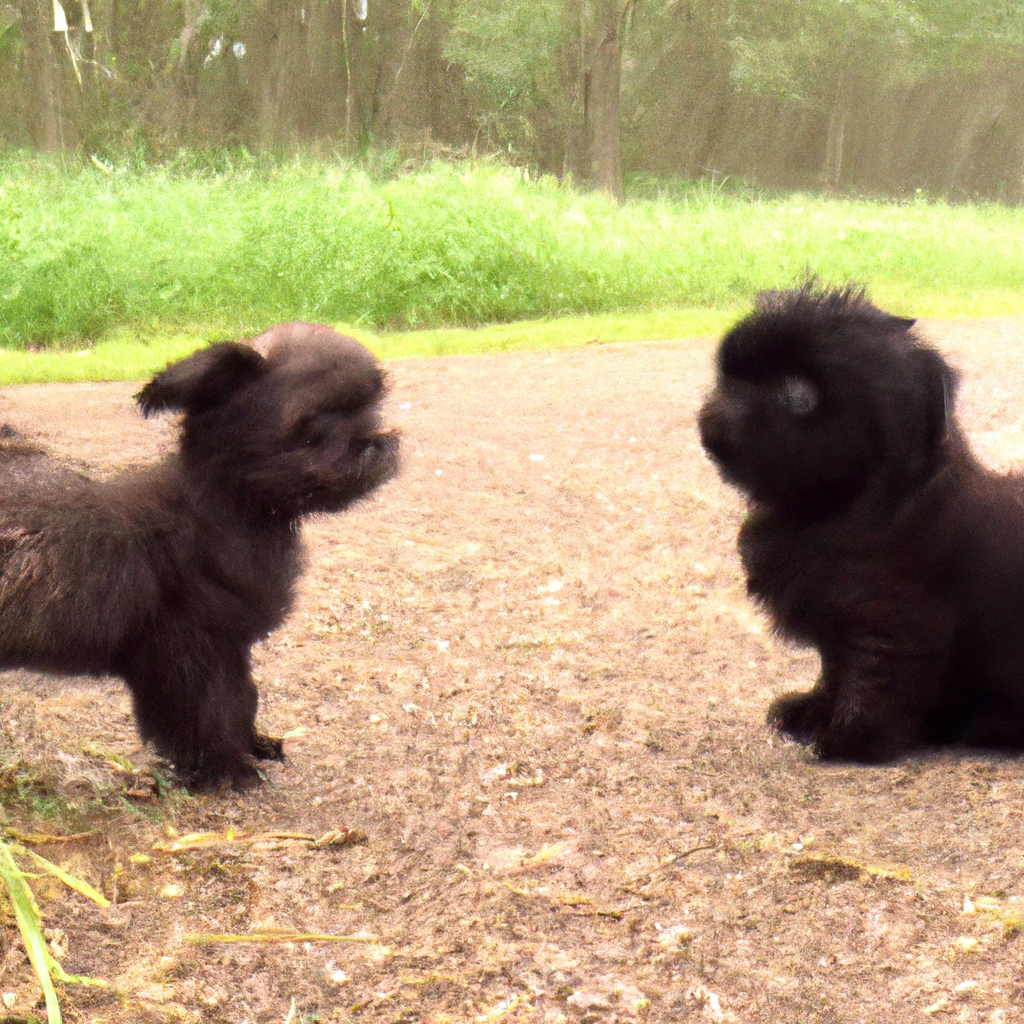
Training Affenpinscher puppies can be a delightful experience, given their playful and adventurous nature. However, it’s important to note that training techniques for puppies differ significantly from those used for adult dogs. Understanding these differences can help you effectively train your Affenpinscher puppy and ensure they grow into well-behaved adult dogs.
Firstly, let’s delve into the world of Affenpinscher puppies. These little bundles of joy are naturally curious and energetic, making them eager to explore their surroundings. This curiosity is a double-edged sword; while it makes them quick learners, it can also lead to distractions during training sessions. Therefore, it’s crucial to keep training sessions short, ideally around 5 to 10 minutes, to maintain their attention.
In contrast, adult Affenpinschers can handle longer training sessions due to their increased attention span. However, puppies’ short attention spans necessitate frequent, short training sessions. This approach helps keep them engaged and prevents them from becoming overwhelmed or bored.
Another key difference lies in the use of rewards. Puppies respond exceptionally well to positive reinforcement. This means that when they perform a desired behavior, they should be immediately rewarded with treats, praise, or playtime. This immediate reward helps them associate the behavior with positive outcomes, encouraging them to repeat it.
On the other hand, while adult dogs also respond to positive reinforcement, they can also understand and respond to more complex training techniques such as negative punishment. This involves removing something the dog likes, such as attention or toys, when they exhibit undesirable behavior. However, this technique is often too complex for puppies to understand and can lead to confusion or fear.
When training Affenpinscher puppies, it’s also important to focus on socialization. Puppies are at a critical stage where they are learning about the world around them. Introducing them to different people, environments, and other animals can help them become well-adjusted adults. This is a crucial part of training that should not be overlooked.
In contrast, while socialization is still important for adult dogs, they may already have established behaviors and reactions to certain stimuli. Therefore, socialization for adult dogs often involves unlearning certain behaviors and learning new ones, which can be a more complex process.
Lastly, patience is key when training Affenpinscher puppies. They are still learning and will make mistakes. It’s important to remain patient and consistent with your training. Remember, the goal is to build a strong, positive relationship with your puppy that will last a lifetime.
In conclusion, while there are similarities in training Affenpinscher puppies and adults, the differences are significant. Puppies require shorter, more frequent training sessions, respond best to positive reinforcement, and need plenty of socialization. On the other hand, adult dogs can handle longer training sessions, understand more complex training techniques, and may require more focused socialization efforts. Understanding these differences can help you tailor your training approach to your Affenpinscher’s age and developmental stage, ensuring a successful and enjoyable training experience.
Training Challenges and Solutions for Adult Affenpinschers
Training an Affenpinscher, whether a puppy or an adult, can be a rewarding experience. However, it’s important to understand that the training process for puppies and adults can be quite different. This is particularly true when it comes to the challenges you may face and the solutions you’ll need to implement.
Adult Affenpinschers, for instance, often come with a set of pre-existing behaviors. These behaviors may have been ingrained over time and can be more difficult to change. This is in contrast to puppies, who are like blank slates, ready to learn and absorb new information. Adult dogs may have developed habits that are not conducive to a harmonious household, such as excessive barking, chewing, or even aggression. These behaviors can be challenging to correct, but with patience and consistency, it is possible.
One of the most effective ways to address these issues is through positive reinforcement. This involves rewarding the dog for good behavior, rather than punishing them for bad behavior. For example, if your adult Affenpinscher has a habit of barking excessively, you could reward them with a treat or praise when they are quiet. This helps them associate quiet behavior with positive outcomes, encouraging them to bark less.
Another challenge with training adult Affenpinschers is that they may be less receptive to new experiences. Puppies are naturally curious and eager to explore their surroundings, making them more open to new training techniques and experiences. Adults, on the other hand, may be more set in their ways and resistant to change. This can make introducing new commands or routines more difficult.
To overcome this, it can be helpful to introduce new experiences gradually. For example, if you’re trying to teach your adult Affenpinscher a new command, start by introducing it in a familiar environment where they feel comfortable. Once they’ve mastered the command in this setting, you can gradually start using it in different environments.
It’s also important to remember that adult Affenpinschers, like all dogs, are individuals. They each have their own personalities, likes, and dislikes. What works for one dog may not work for another. Therefore, it’s crucial to be patient and flexible in your training approach. If one method isn’t working, don’t be afraid to try something else.
Finally, it’s worth noting that while training an adult Affenpinscher can be challenging, it can also be incredibly rewarding. Adult dogs often form strong bonds with their owners and can be just as eager to please as puppies. With patience, consistency, and a positive approach, you can help your adult Affenpinscher overcome any training challenges and become a well-behaved member of your family.
In conclusion, training an adult Affenpinscher comes with its own set of challenges, but these can be overcome with the right approach. By using positive reinforcement, introducing new experiences gradually, and being patient and flexible, you can successfully train your adult Affenpinscher. Remember, every dog is an individual, and what works for one may not work for another. But with patience and consistency, you can help your adult Affenpinscher become a well-behaved and cherished member of your family.
The Role of Maturity in Training Affenpinschers
Training an Affenpinscher, whether a puppy or an adult, can be a rewarding experience. However, it’s important to understand that the training approach for each age group differs significantly due to the role of maturity.
When training an Affenpinscher puppy, patience is key. Puppies are naturally curious and energetic, which can make them easily distracted. They have short attention spans, so training sessions should be kept short and sweet. It’s best to focus on basic commands like “sit,” “stay,” and “come” at this stage. Positive reinforcement is crucial in puppy training. When your Affenpinscher puppy successfully follows a command, reward them with a treat or praise. This will encourage them to repeat the behavior in the future.
On the other hand, socialization is another important aspect of puppy training. Affenpinschers are known for their bold and protective nature, which can sometimes lead to aggression if not properly socialized. Introducing your puppy to different people, environments, and other animals at a young age can help them become more comfortable in various situations as they grow older.
Transitioning to adult Affenpinschers, the training approach changes slightly due to their increased maturity and longer attention span. Adult Affenpinschers can handle longer and more complex training sessions. They can be taught more advanced commands and tricks that may have been too difficult for them as puppies. However, it’s important to remember that consistency is key in training adult dogs. They need to practice the commands regularly to remember them.
While adult Affenpinschers may be more focused during training sessions, they can also be more set in their ways. This can make it more challenging to correct unwanted behaviors. If your adult Affenpinscher has developed a bad habit, it may take longer to train them out of it compared to a puppy. It’s crucial to address these behaviors immediately and consistently to ensure they understand what is expected of them.
Despite these challenges, training an adult Affenpinscher can be incredibly rewarding. They are intelligent dogs that are capable of learning a wide range of commands and tricks. Plus, their playful and affectionate nature can make the training process enjoyable for both you and your dog.
In conclusion, the role of maturity in training Affenpinschers cannot be overstated. Puppies require short, positive reinforcement-based training sessions and plenty of socialization. Adult Affenpinschers, on the other hand, can handle more complex training but may require more consistency and patience, especially when correcting bad habits. Regardless of the age of your Affenpinscher, remember that training should always be a positive and rewarding experience for your dog. With patience, consistency, and understanding, you can successfully train your Affenpinscher at any age.
Comparing Training Progress: Affenpinscher Puppies vs Adults
Training an Affenpinscher, whether a puppy or an adult, can be a rewarding experience. However, it’s important to understand that the training process can vary significantly depending on the age of the dog. Puppies and adult Affenpinschers have different learning styles, attention spans, and energy levels, which can impact their training progress.
Starting with Affenpinscher puppies, they are typically more energetic and curious, which can be both a blessing and a challenge when it comes to training. On one hand, their high energy levels and curiosity can make them eager to learn new things. They are often more receptive to new experiences, which can make the introduction of training exercises easier. However, their boundless energy can also make them easily distracted, which can slow down the training progress.
Puppies also have shorter attention spans compared to adult dogs. This means that training sessions need to be short, fun, and engaging to keep their interest. It’s also important to remember that puppies are still developing both physically and mentally. Therefore, their training should focus on basic commands and socialization rather than complex tasks.
On the other hand, training an adult Affenpinscher can be a different experience. Adult dogs generally have longer attention spans, which can make them more focused during training sessions. They can handle longer and more complex training exercises, which can speed up the training progress.
However, adult Affenpinschers may also come with their own set of challenges. For instance, if they have not been properly socialized or trained as puppies, they may have developed bad habits or behavioral issues that can be difficult to correct. They may also be less receptive to new experiences compared to puppies, which can make the introduction of new training exercises more challenging.
Despite these challenges, it’s important to remember that adult Affenpinschers can still be successfully trained with patience and consistency. In fact, they can often learn new commands and tricks faster than puppies due to their longer attention spans and greater focus.
When comparing the training progress of puppies and adults, it’s clear that both have their own strengths and weaknesses. Puppies may be more energetic and curious, but their short attention spans can slow down the training progress. On the other hand, adult dogs may be more focused and capable of handling complex tasks, but they may also have behavioral issues that need to be addressed.
In conclusion, training an Affenpinscher, whether a puppy or an adult, requires understanding their unique learning styles and adapting the training methods accordingly. It’s also important to remember that every dog is an individual, and what works for one may not work for another. Therefore, patience, consistency, and a positive approach are key to successful training. Whether you’re training a playful puppy or a focused adult, the journey can be a rewarding experience that strengthens the bond between you and your Affenpinscher.
Adapting Training Methods for Affenpinscher’s Age and Development Stage
Training your Affenpinscher, whether a puppy or an adult, can be a rewarding experience. However, it’s important to understand that the training methods you use should be adapted to your dog’s age and development stage. This is because puppies and adult dogs learn differently, and what works for one may not necessarily work for the other.
When training a puppy, it’s crucial to remember that their attention spans are relatively short. Therefore, training sessions should be kept brief, ideally no longer than 15 minutes at a time. Puppies are also more impressionable, so it’s the perfect time to establish good habits and behaviors. Positive reinforcement is key at this stage. Rewarding your puppy with treats, praise, or playtime when they follow a command correctly can help them associate the behavior with positive outcomes.
On the other hand, training an adult Affenpinscher requires a slightly different approach. Adult dogs typically have longer attention spans, allowing for more extended training sessions. However, they may also have ingrained habits or behaviors that need to be unlearned, which can be a challenging task. Patience and consistency are vital when training an adult dog. It’s important to stick with the training and not give up, even if progress seems slow.
One common misconception is that adult dogs are not as trainable as puppies. This is not true. While puppies may learn new behaviors more quickly, adult dogs are perfectly capable of learning new commands and changing their behavior. It might take a little more time and patience, but with consistent training, they can certainly learn.
Regardless of your Affenpinscher’s age, socialization is an essential part of their training. Puppies should be introduced to a variety of people, environments, and other animals to help them become well-rounded dogs. Similarly, if an adult dog hasn’t been properly socialized, it’s never too late to start. Regular walks, trips to the dog park, or play dates with other dogs can help them become more comfortable in different situations.
Another important aspect to consider is your Affenpinscher’s energy level. Puppies usually have a lot of energy and need plenty of exercise to burn it off. Incorporating playtime into their training can make it more enjoyable for them. Adult dogs, while still energetic, may not require as much physical activity. However, mental stimulation is equally important for dogs of all ages. Puzzle toys, obedience training, and interactive games can keep their minds sharp.
In conclusion, while there are differences in training puppies and adult Affenpinschers, the underlying principles remain the same. Positive reinforcement, consistency, patience, socialization, and appropriate mental and physical stimulation are all crucial elements of effective training. By adapting your training methods to your Affenpinscher’s age and development stage, you can ensure that they learn effectively and become well-behaved members of your family. Remember, every dog is unique, so it’s important to tailor your training to your individual dog’s needs and personality. With time, patience, and a little bit of effort, training your Affenpinscher can be a rewarding and bonding experience for both of you.In conclusion, training differences between puppies and adult Affenpinschers are significant. Puppies are generally more receptive to training as they are in their formative years and can easily pick up commands and habits. They require consistent, positive reinforcement training methods. Adult Affenpinschers, on the other hand, may have pre-existing behaviors and habits that can make training more challenging. They may require more patience and possibly professional intervention for effective training. However, both puppies and adults can be trained successfully with the right approach and consistency.
